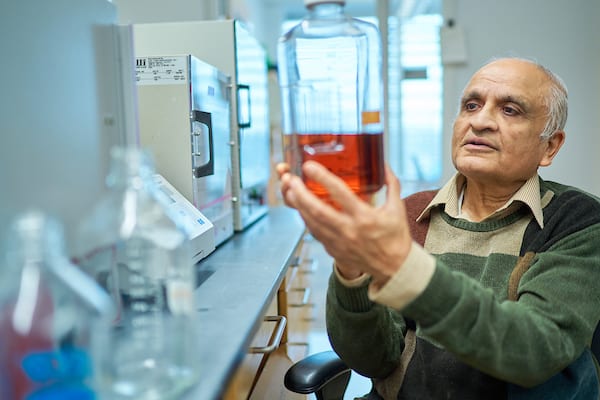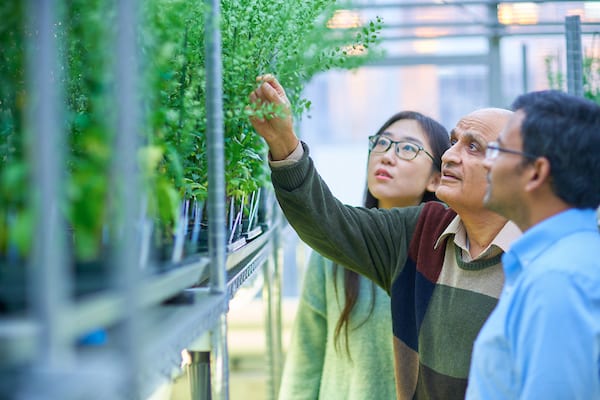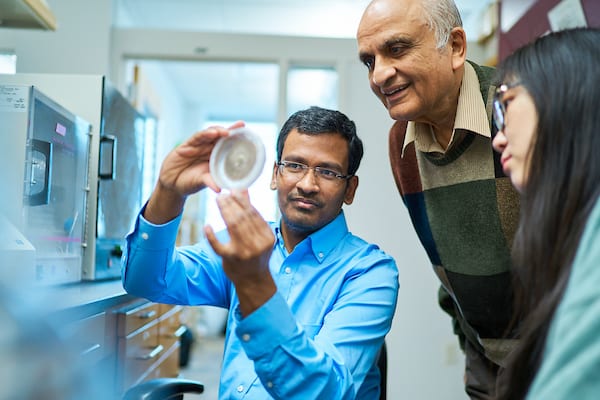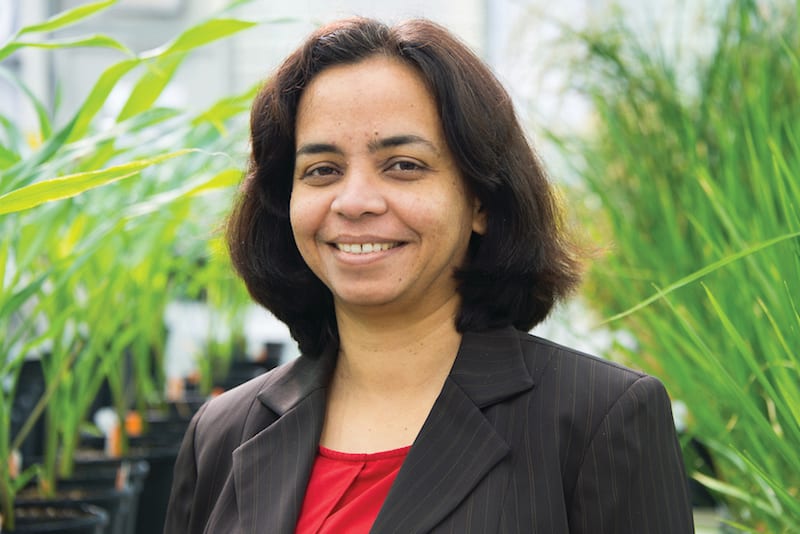The Book That Changed His Life
The book Human Genetics by A.M. Winchester changed Dilip’s life.
After reading it while he was an undergrad, Dilip instantly knew that he wanted to pursue plant science. “In the book, Winchester talked about how Gregory Mendel got involved in looking at some of the traits in pea plants. That’s what really got me excited about plants. After that, I decided I was going to study plant genetics.”
And with that realization, Dilip left his home state of Gujarat, India to pursue his PhD in plant genetics at North Carolina State University. Today, he is principal investigator and associate research member at the Danforth Center.
A New Beginning
Dilip joined the Danforth Center on November 1, 2001, the same day that our original building was inaugurated. “When I first came to the Danforth Center, I was suddenly working with PIs that studied plant cell biology, plant structural biology, plant biochemistry. It was really very exciting to have the opportunity to collaborate with them. It was extremely gratifying,” explains Dilip.

The Art of Fungal War
Dilip’s lab studies how plants defend themselves against fungal diseases. The goal of their research is to discover new ways to enable plants to better protect themselves from fungal attacks. To do this, they research antifungal peptides that have the ability to kill pathogens. Once Dilip’s lab understands how a peptide eliminates a pathogen, his lab can then apply the peptides to make crops resistant to a specific disease.
One of the fungal diseases that Dilip and his lab are researching is Gray Mold Disease, which causes multi-millions of US dollars in pre- and postharvest losses across the world. Gray mold is caused by a fungus Botrytis cinerea that can infect flowers, fruits, and vegetables. Dilip’s lab is working on technology that, when applied, could potentially control gray mold in multiple economically important plants.
Dilip’s work also has significant implications for the future of food security. In agriculture, 15-20% of crops are lost each year because of the fungal diseases. By making plants more disease resistant, Dilip could reduce that statistic. For a smallholder farmer where each bushel is critical to feeding the community, reducing crop loss could drastically improve human health.

Making Crop Protection More Sustainable
Crop protection is a priority for farmers all over the world, from smallholder farms in developing countries to 3,000 acre operations in Iowa. With Dilip’s technology, farmers will be able to use non-toxic chemical fungicide and use less of it, helping to make crop protection more sustainable for years to come.
Despite having a significant impact on agriculture through past and current discoveries, Dilip is not done yet: “I know I need to keep going because there is still much to discover and much to invent. There is a great opportunity to make a difference in crop protection.”





